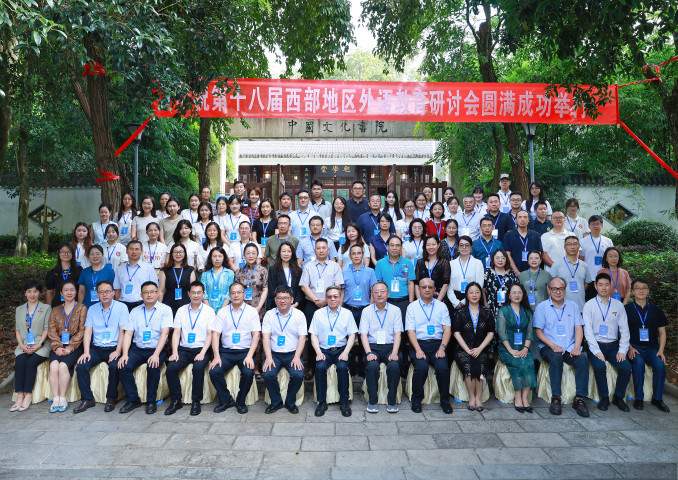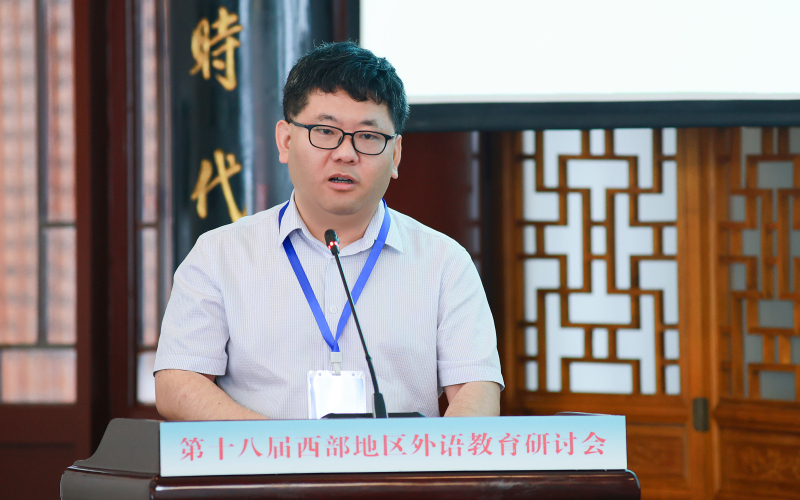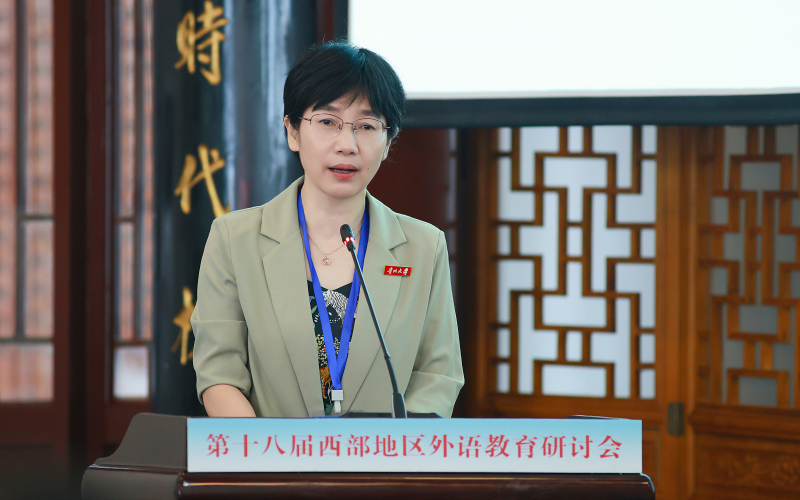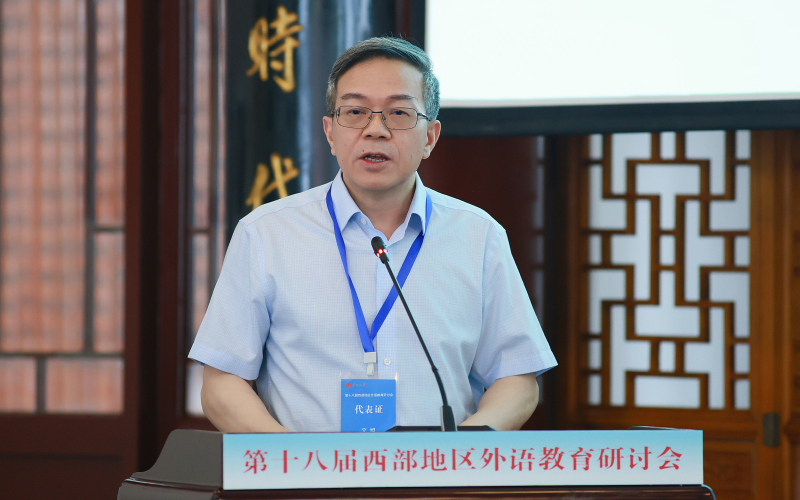On July 19, the 18th Western China Foreign Language Education Symposium opened at the Chinese Culture Academy of Guizhou University (GZU). Themed “Foreign Language Education in Western China in the Age of Artificial Intelligence,” the symposium provides a professional platform for academic exchange, promotes collaboration between western and national foreign language educators, and supports the advancement of foreign language education in western China.

In his opening remarks, GZU Vice President Chen Yanbo outlined GZU’s history and the achievements of its College of Foreign Languages. He emphasized the symposium as a key opportunity to strengthen the college’s academic capacity, and he was confident that the keynote speeches would shed light on current trends, widen perspectives, and offer clear guidance for advancing foreign language education in western China.

Zhou Jie, Dean of the College of Foreign Languages, highlighted the transformative impact of artificial intelligence on language education. She stressed that educators must embrace technological change while maintaining a strong humanistic foundation to cultivate talent capable of leveraging intelligent tools and promoting cultural exchange. She also shared the college’s recent initiatives, including AI-integrated curricula, innovative teaching models, and intelligent language research, and expressed her hope for the symposium to inspire new approaches for AI-driven educational reform in western China.

Wen Xu, doctoral supervisor at College of International Studies, Southwest University,
reflected on the symposium’s 17-year history in supporting western China’s educational development. He urged participants to harness innovation in the digital era, underscored three historic advances in regional foreign language education, and encouraged scholars to build on the symposium to uphold educational values, clarify the boundaries of innovation, and highlight the distinctive strengths of foreign language education in western China.

Following the opening ceremony, discussions focused on themes including “Reforming Foreign Language Curriculum Systems and Teaching Content in the Digital Era,” “Innovative Models for Talent Training in Western China,” and “Integrating Intelligent Technology into Foreign Language Classrooms.”
The symposium was hosted by the Committee of Cognitive Translation Studies, under the Cognitive Translation Studies Association of China (CTSA) and organized by College of Foreign Languages of GZU. Co-organizers included the editorial boards of Asian-Pacific Journal of Second and Foreign Language Education and Language, Translation and Cognition, as well as Tsinghua University Press, Foreign Language Teaching and Research Press, Shanghai Foreign Language Education Press, Beijing Colink Digital Technology Co., Ltd., Guizhou Zhongke Zhuoyue Technology Co., Ltd., and Sichuan Zhihuilin Technology Co., Ltd.
Editor: Zhang Chan
Chief Editor: Li Xufeng
Senior editor: Ding Long
Translator: Xiao Qi